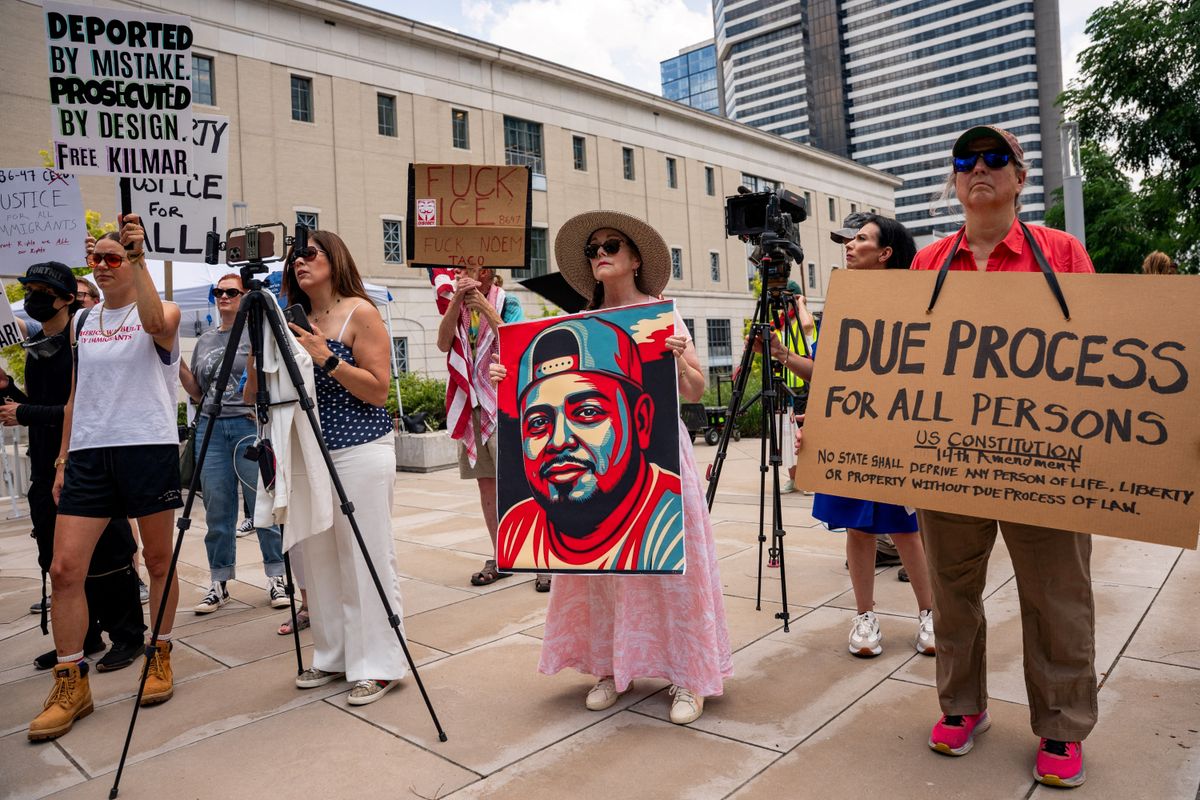
Judge Paula Xinis called for a hearing where she could question a Department of Homeland Security staff member about the Kilmar Ábrego García case and details around his deportation to a brutal prison in El Salvador.
Thomas Giles, an ICE official based in Los Angeles, took the stand Thursday afternoon, where he was questioned about their plans for Ábrego García's future deportation. The problem he faced was that Ábrego García's lawyer got him to admit he actually knew nothing about the case and wouldn't have had anything to do with the deportation, as another office would handle it.
Ábrego García's lawyer, Sascha Rand, questioned Giles before Xinis had her own questions for the ICE official.
WJZ News reporter Mike Hellgren wrote on X from the courtroom that after over 4 hours, the judge appeared to grow frustrated with the answers from the ICE official. Or, rather, the "lack of specifics as to where they will place someone in custody," said Hellgren.
“It sounds like for Ábrego García, it won’t be just a matter of bed space,” Xinis said.
The government attorney asked Giles about President Donald Trump, Homeland Security Secretary Kristi Noem, and other administration officials and their statements on the matter.
“To what extent has this case changed the way ICE does business?” the DOJ asked.
Giles claimed there was no politics involved and that Ábrego García has been treated just like everyone else.
At one point, Lawfare's Anna Bower described things as "going off the rails for the DOJ."
Justice Department lawyer Sarmad Khojasteh tried "to pivot to a confusingly worded question about people who are subject to third party removals already having received process," said Bower.
There was an objection and a sidebar discussion with the judge.
"It is almost five," the judge said. "I was hoping to have [an] argument, but that's not going to happen tonight. Can you come in tomorrow morning?"
Khojasteh told the judge he is otherwise engaged.
"Well, maybe we talk about this now," said the judge, according to Bower's account. "Next week, there will be a decision from [U.S. District Court] Judge [Waverly] Crenshaw. And maybe this issue will be mooted, so maybe it's not quite ripe. But I want to be apprised of how ICE actions could impact my jurisdiction...If he's released, I want to have a hearing. But to do that, I need some pause between if he's released and what happens next."
The judge went on to say she thinks the best course would be to meet in court 48 hours after ICE takes custody of Ábrego García, if he is released.
"And we have a hearing when there's a better understanding of what's going to happen then," she said.
"My suggestion would be that I would enter a [temporary restraining order] that's just to hold the place of this hearing, saying that if he's released DHS cannot remove him beyond the confines of Tennessee [or where he's held] until we have this hearing...that's what I think will happen if we don't come back tomorrow," the judge said according to Bower.
Khojasteh changed his mind, telling the judge he'd come back tomorrow.
"This TRO might happen even if you come back tomorrow," the judge said.
"Your honor, this would be easier for me if you give me 30 minutes to make this decision. Can you give me 30 minutes?" asked Khojasteh.
They then paused for the Justice Department lawyers, but ultimately decided to return on Friday.




